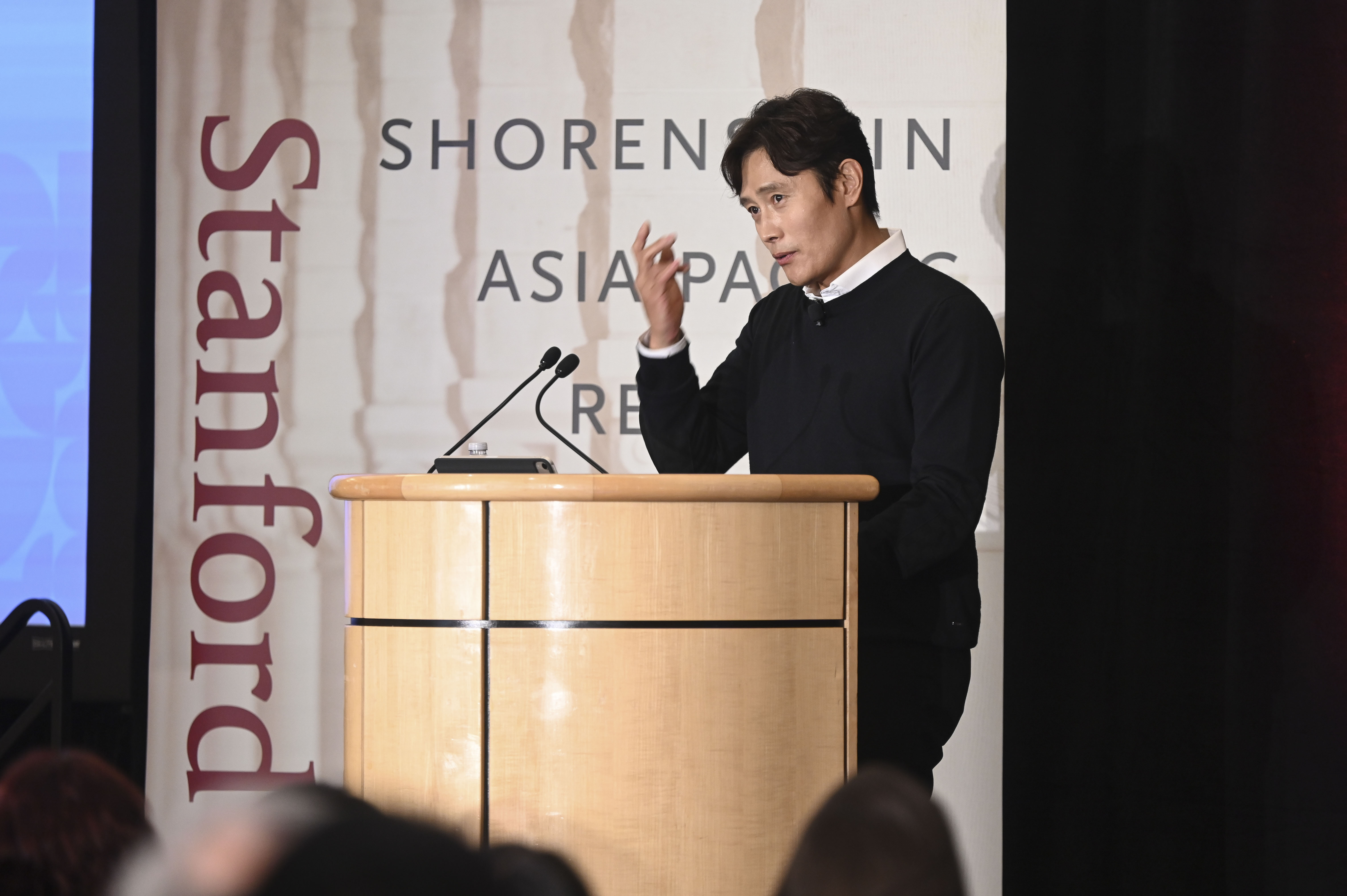On Wednesday, the Walter H. Shorenstein Asia-Pacific Research Center hosted the fifth installment of its 40th-anniversary event series, “Asia in 2030, APARC@40.” The half-day conference brought in notable speakers in the Korean film industry, including screenwriter Ji Eun Park and actor Byung Hun Lee.
“In more recent years, [Korean] culture [and media] has garnered more global attention due to the success of K-pop groups such as BTS [and] Blackpink, the movie ‘Parasite’ and the Netflix series ‘Squid Game,’ said Sangsoo Yoon, Consul General of The Republic of Korea in San Francisco, in the welcome remarks.
Korean actor Byung Hun Lee, who has starred in popular Korean drama series “Squid Game” and “G.I. Joe: The Rise of Cobra,” spoke about his thoughts on the influence of Korean culture in the event’s final panel. Lee’s acting career began unexpectedly. He tried out for an open audition at a family friend’s suggestion and was selected as one of 16 to undergo a three month-long rigorous training process.
Lee was challenged when he tried to enter the Hollywood film market, despite having previously acted in Asian films for 20 years. His English fluency was limited to small talk, and most people in L.A. didn’t know who he was. He was even told to get out of the way during a red carpet event.
Having experienced both Korean and American film industries gave him insights into the two’s differences.
“Since the Hollywood budget was so high, everything needs to be pre-planned, and changing the set could cost the studio millions of dollars,” he said. The mass production of Hollywood means that the production process has less flexibility for new ideas.
“On the flip side, Korean productions’ best strength is our response time and flexibility. The filming process does not go exactly as planned or scripted,” Lee added.
Another conference panel, “Behind the Silver Screen: Writing a K-Drama,” featured Ji Eun Park, screenwriter of the hit K-dramas “Crash Landing on You,” “The Legend of the Blue Sea” and “My Love from the Star.” Park spoke of how she was inspired to pursue drama writing as a career after meeting a well-known Korean writer who advised her to “expose [herself]] to a variety of experiences even if they are difficult.”
Scholars from Stanford and other universities were brought together to share their perspectives on the future of Korean entertainment in the second panel, “K-Dramas and Korean Studies: Lessons and New Directions.”
Bonnie Tilland, a lecturer at the University of Leiden, shared that people in the Netherlands have become increasingly interested in Korean literature and media. According to Tilland, studies pertaining to Korea at the University of Leiden have been “historically very focused on North Korea” but recently shifted to South Korea because of the influence of Korean popular culture.
The other panelists asserted the increased interest in Korean studies on their college campuses. Tillard stated that the surge of interest in South Korea came from instructors and students alike.
What makes Korean culture popular worldwide? According to Yoon, Korean cinema attempts to address a broad range of social issues and effectively invokes empathy from viewers.
In a globalized world, creative works and popular culture have more power to bring people together than ever, according to Lee. Having been influenced by films from Hong Kong and Japan himself, Lee hoped that creative works would allow people to more profoundly appreciate diverse cultures.
